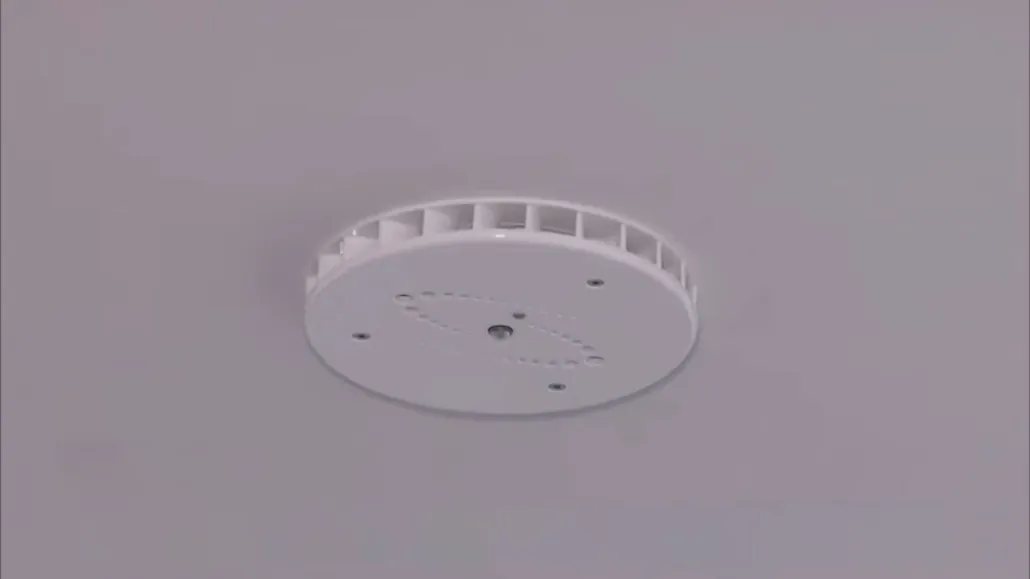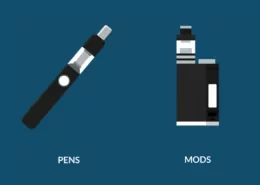How Vape Detectors Work: The Ultimate Guide
Vaping has become a significant concern for schools across the nation, with many students using e-cigarettes in bathrooms and locker rooms. To combat this issue, schools are turning to vape detectors as a solution. In this ultimate guide, we’ll explore how these devices work and why they are essential for maintaining a safe and healthy learning environment.
Technology Behind Vape Detectors
Vape detectors work by continuously monitoring the air quality in a designated area, such as a school bathroom or locker room. These sophisticated devices are capable of detecting vaping particles as small as 0.3 microns, including a wide range of harmful chemicals and substances:
- Nicotine, which can lead to lung illness, heart problems, and other health concerns
- THC oil (marijuana), known to cause drowsiness, slower reaction times, impaired coordination, and difficulty paying attention
- Volatile organic compounds (VOCs), linked to cancer, irritation, and nervous system issues
- Flavorings like diacetyl, associated with lung disease
- Heavy metals such as lead, tin, and nickel
- Other ultrafine particles
When a vape detector identifies the presence of these particles, it can send real-time SMS or email alerts to school administrators, enabling them to take immediate action to address the situation.

How Vape Detectors Work
Most vape detectors employ advanced learning algorithms that allow them to accurately identify vaping behavior. This technology enables the devices to quickly detect particles of various sizes and concentrations, minimizing the risk of false-positive notifications.
To ensure optimal performance, vape sensors are rigorously tested to detect chemicals from popular vape brands, such as Puff Bar, Juul, Vuse, and Smok. This comprehensive testing process helps the devices accurately identify vaping incidents, providing school officials with reliable information to act upon.
Addressing Privacy Concerns
One common question that arises when discussing vape detectors is whether they violate students’ privacy. The answer is no. Unlike surveillance cameras, vape detectors do not record video or visually monitor students. Instead, they focus solely on analyzing the air quality for the presence of vaping-related chemicals. While some devices may use audio detection, it is limited to specific noises and keywords and does not involve recording conversations.
Optimal Placement for Vape Detectors
To maximize the effectiveness of vape detectors, it is crucial to place them in areas where students are most likely to engage in vaping activities. The two most common locations are school bathrooms and locker rooms. These areas provide easy access and lack of supervision, making them attractive spots for students to vape discreetly.
When installing vape detectors, consider the following tips:
- Place the device in a central location, away from ventilation or exhaust fans that may interfere with accurate detection.
- Install the detectors in restrooms or locker rooms with a ceiling height between 9 and 11 feet (2.7 to 3.4 meters).
- For larger bathrooms, ensure that there is one sensor for every 10 to 12 feet (3.05 to 3.66 meters).
Funding Options for Vape Detectors
School districts may face budget constraints when considering the purchase of vape detectors. However, there are several federal government grants available to help schools acquire these devices:
- CARES Act Air Quality Fund: This grant is specifically designed to assist schools in improving air quality.
- School safety grants: Schools with safety initiatives, such as anti-vaping programs, may be eligible for funding to purchase vape detectors.
- Anti-bullying grants: Some vape detectors with keyword detection features can help identify instances of bullying, potentially qualifying for funding under this grant.

ECIGATOR
Ecigator is one of the well-known vape brands spun off from FM Technology Co., Ltd, it’s an ISO-certified disposable vape manufacturer for OEMs, ODMs, and OBM since 2010. The founder team comes from top firms with more than 10 years of experience in the vaping industry and has devoted thousands of hours to providing users with a better and better experience.
The Importance of Addressing Vaping in Schools
Vaping poses a significant health hazard to students, and the CDC has deemed e-cigarettes unsafe for adolescents and teens. Nicotine, a highly addictive substance found in most vaping products, can negatively impact brain development, leading to issues with learning, attention, impulse control, and mood. Moreover, vape users have a higher risk of developing drug addictions in the future.
Many popular vape brands, such as SPIRITBAR Vape, contain extremely high levels of nicotine, equivalent to that found in 20 cigarette packs. The use of nicotine salts in these products makes them easier to inhale, further increasing their appeal to young users. Disturbingly, two-thirds of Juul smokers aged 15-24 are unaware of the excessive nicotine content in these devices.
In addition to the direct health risks to the user, vaping also poses a threat to those nearby through second-hand exposure to toxic and potentially cancer-causing aerosols. Some vaping devices have even been known to explode, causing burns and disfigurement.
Conclusion
Vape detectors are an essential tool for schools in the fight against student vaping. By utilizing advanced technology to detect nicotine, THC, and other harmful substances in the air, these devices enable school administrators to take swift action and maintain a safe, healthy learning environment. While some may have concerns about privacy, vape detectors do not visually monitor students and focus solely on air quality analysis.
To ensure the effectiveness of vape detectors, proper placement in bathrooms and locker rooms is crucial. Schools struggling with funding for these devices may be eligible for various federal grants designed to support air quality improvements, safety initiatives, and anti-bullying efforts.
Ultimately, addressing the vaping epidemic among students is a critical responsibility for schools nationwide. By investing in vape detectors and educating students about the dangers of e-cigarettes, we can work together to protect the health and well-being of our youth.
- HHC Vapes: What Are They & Are They Safe? - July 31, 2025
- Cannabis and Vape Shop Workers Rank Happiest in Nation - July 31, 2025
- Richmond, VA, Restricts New Vape & Tobacco Shop Locations - July 31, 2025









